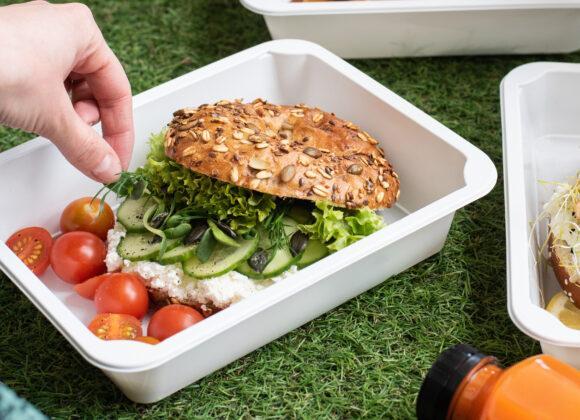Opowiem Ci historię, która przydarzyła mi się kilka razy – jedyne, co za każdym razem się zmieniało, to pierwotna potrzeba i efekt. Potrzebowałam chleba i pomidorów do tego, by przygotować zupę. Poszłam więc do najbliższego supermarketu, chcąc zaopatrzyć się w brakujące składniki. Po obejrzeniu wszystkiego i włożeniu do koszyka wybranych produktów udałam się do kasy. Dumna z siebie, wróciłam do domu z… czterema puszkami czarnej fasoli i ulubionym sokiem pomarańczowym. Zupy pomidorowej tego dnia nie zjadłam.
Znasz takie sytuacje? Często zdarza Ci się kupić coś, czego nie miałeś w planach, zamiast produktów z listy zakupów? Jeśli tak, to mogę Cię pocieszyć – nie jest to do końca Twoją winą.
Czas… gdzieś płynie, ale nie tutaj
Na pewno wiele razy byłeś/-aś w jakimś supermarkecie. Polski rynek obfituje w tego rodzaju sklepy, ponieważ w miarę przystępnych cenach, w tym samym czasie można w nich kupić wiele różnych produktów. Ułatwia nam to życie, prawda? Sklepy wielkopowierzchniowe mają jeszcze jedną wspólną właściwość – niemal całkowity brak okien i zegarów. Dlaczego zostały w ten sposób zaprojektowane? Jest to przypadek czy celowe działanie?
Właścicielom sklepów zależy przede wszystkim na tym, abyś jak najwięcej u nich kupił/-a. W związku z tym trafne jest przypuszczenie, że im dłużej będziesz w sklepie, tym więcej włożysz do koszyka. Teraz zastanów się, w jakich okolicznościach możesz stracić poczucie czasu? Jeśli widzisz przez okno, że zapada zmierzch albo się ściemnia, ponieważ zaraz będzie ulewa, raczej spowoduje to, że szybciej skończysz zakupy i wrócisz do domu. Co innego w sytuacji, gdy tych okien nie ma i nie widzisz, co się dzieje na zewnątrz.
Z podobnego powodu w supermarketach nie zobaczysz też zegarów – w końcu po co miałbyś/-abyś wiedzieć, ile czasu jesteś już na zakupach? Dzięki temu możesz dalej, bez pośpiechu przeglądać zasoby kolejnych półek sklepowych.
Nieprzypadkowy labirynt
Może się wydawać, że ułożenie kategorii produktów w sklepach wielkopowierzchniowych jest przypadkowe. Nic bardziej mylnego! I w tej sytuacji sprzedawcy chcą, żebyś jak najwięcej czasu spędził/-a na zakupach, dlatego produkty pierwszej potrzeby są od siebie oddalone. Chcąc przejść z jednej części sklepu do drugiej, po drodze miniesz wiele produktów, które przecież mogą Ci się przydać. Zwrócisz więc na nie uwagę i znajdą się w Twoim koszyku.
Zauważyłeś/-aś może, że przy kasach zazwyczaj znajdują się słodycze i promocje? To również nie jest przypadkowe. Bardzo często ofiarami tej sztuczki stają się czekający w kolejce do kasy rodzice, których dzieci – zachwycone kolorowymi półkami ze słodkościami – zaczynają negocjować zakup batonika lub paczki cukierków. Mnie również nie raz zdarzyło się wrzucić na taśmę zakupową paczkę gum do żucia – już na ostatniej prostej, przy kasie. Przecież zawsze się przydadzą, a to, że w kurtce mam jeszcze zapas sprzed miesiąca, w niczym nie przeszkadza. 😉
Dźwięk i zapach – mają znaczenie w procesie podejmowania decyzji?
Zapach ma bardzo silny wpływ na to, jakie decyzje podejmujesz. Może on wprowadzić Cię w dobry nastrój – lub wprost przeciwnie. Dzięki niemu możesz także powrócić do wspomnień z dzieciństwa lub swoich najlepszych wakacji. Faktem jest, że inaczej też postrzegamy produkty, gdy w pomieszczeniu pachnie*.
Wróćmy na chwilę do supermarketów. W niektórych z nich – zwłaszcza takich, które mają własne piekarnie – pieczywo znajduje się na początku sklepu. Tej sekcji zazwyczaj towarzyszy zapach ciepłego, świeżego pieczywa. Dzięki temu przypominają się wakacje u babci na wsi i pajdy chleba ze świeżym masłem. Od razu żołądek zaczyna sobie przypominać, jak to wspaniale było gościć taki chlebek… i robisz się głodny/-a. Jest to niebezpieczne, bo wówczas możesz mieć pewność, że wyjdziesz ze sklepu nie tylko z tym, po co przyszłaś/przyszedłeś.
Okazuje się, że dźwięk również nie jest nam obojętny. Instynktownie o tym wiemy. Jeśli jesteś kierowcą, wyobraź sobie, że prowadzisz samochód wieczorową porą. Czy Twój sposób jazdy będzie się trochę różnił w zależności od tego, czy będziesz słuchać spokojnej poezji śpiewanej czy dynamicznego hard rocka? Odpowiedź brzmi: tak, będzie. I to nie dlatego, że sama na sobie to przetestowałam.
O tym, jak na nas wpływa muzyka, mówią badania profesora Ronalda E. Millimana. Sprawdził on, czy na wzrost sprzedaży będzie miało wpływ to, jakie dźwięki będą towarzyszyć konsumentom podczas zakupów. Okazało się, że tam, gdzie z głośników płynęła spokojna muzyka, sprzedaż zwiększyła się aż o 40%! Dlaczego? Bo wolna muzyka łagodzi obyczaje 😉 i sprawia, że działasz powolniej (w samochodzie także). A im wolniej poruszasz się po sklepie, tym więcej kupisz. Czyli jest to kolejny sposób, aby zatrzymać Cię w supermarkecie na dłużej!
_____
* Firma Nike przeprowadziła eksperyment, w którym badała wpływ zapachu na decyzje konsumenckie i postrzeganie produktów. W dwóch takich samych sklepach umieścili te same produkty i poprosili badanych, by wycenili ich wartość. Jedyną różnicą był zapach – w jednym sklepie nie było żadnego konkretnego zapachu, w drugim można było wyczuć pewną kompozycję. Konsumenci wycenili wyżej te produkty, które były w pachnącym pomieszczeniu.










 Młodszy specjalista ds. komunikacji marketingowej i PR.
Młodszy specjalista ds. komunikacji marketingowej i PR.


 Absolwent Uniwersytetu Warszawskiego oraz Szkoły Głównej Gospodarstwa Wiejskiego. W branży HoReCa od ponad 10 lat. Przez lata związany z Grupą Trip, Sobienie Królewskie Golf and Country Club oraz restauracją Florentin w Warszawe.
Absolwent Uniwersytetu Warszawskiego oraz Szkoły Głównej Gospodarstwa Wiejskiego. W branży HoReCa od ponad 10 lat. Przez lata związany z Grupą Trip, Sobienie Królewskie Golf and Country Club oraz restauracją Florentin w Warszawe. Absolwentka Wydziału Architektury Politechniki Warszawskiej na kierunku Architecture for Society of Knowledge oraz Komunikacji Wizualnej na Politecnico di Milano. Specjalistka od budowania nastroju. Doświadczenie zdobywała w kraju i zagranicą podczas licznych warsztatów międzynarodowych (Sevilla, Lizbona, Florencja), stypendium na La Sapienza (Rzym) oraz pracując m.in. w Carmi e Ubertis i ADM Milano.
Absolwentka Wydziału Architektury Politechniki Warszawskiej na kierunku Architecture for Society of Knowledge oraz Komunikacji Wizualnej na Politecnico di Milano. Specjalistka od budowania nastroju. Doświadczenie zdobywała w kraju i zagranicą podczas licznych warsztatów międzynarodowych (Sevilla, Lizbona, Florencja), stypendium na La Sapienza (Rzym) oraz pracując m.in. w Carmi e Ubertis i ADM Milano.








 Menedżer z wieloletnim doświadczeniem w branżach kosmetycznej, spożywczej, dziecięcej. W trakcie swojej kariery związany z firmami takimi jak: L’Oreal, Samsung, Danone-Nutricia, Unilever. W ciągu swojego życia zawodowego odpowiadał między innymi za rozwój sprzedaży i contentu eCommerce w Polsce i krajach Europy Środkowo-Wschodniej.
Menedżer z wieloletnim doświadczeniem w branżach kosmetycznej, spożywczej, dziecięcej. W trakcie swojej kariery związany z firmami takimi jak: L’Oreal, Samsung, Danone-Nutricia, Unilever. W ciągu swojego życia zawodowego odpowiadał między innymi za rozwój sprzedaży i contentu eCommerce w Polsce i krajach Europy Środkowo-Wschodniej. 

























































